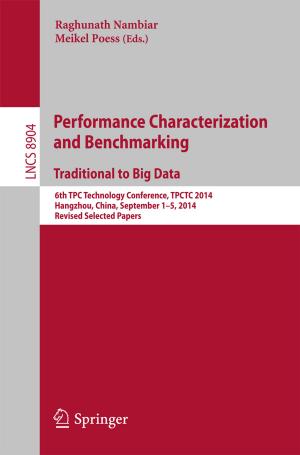Fault-Tolerance Techniques for High-Performance Computing
Nonfiction, Computers, Computer Hardware, Input-Output Equipment, General Computing| Author: | ISBN: | 9783319209432 | |
| Publisher: | Springer International Publishing | Publication: | July 1, 2015 |
| Imprint: | Springer | Language: | English |
| Author: | |
| ISBN: | 9783319209432 |
| Publisher: | Springer International Publishing |
| Publication: | July 1, 2015 |
| Imprint: | Springer |
| Language: | English |
This timely text presents a comprehensive overview of fault tolerance techniques for high-performance computing (HPC). The text opens with a detailed introduction to the concepts of checkpoint protocols and scheduling algorithms, prediction, replication, silent error detection and correction, together with some application-specific techniques such as ABFT. Emphasis is placed on analytical performance models. This is then followed by a review of general-purpose techniques, including several checkpoint and rollback recovery protocols. Relevant execution scenarios are also evaluated and compared through quantitative models. Features: provides a survey of resilience methods and performance models; examines the various sources for errors and faults in large-scale systems; reviews the spectrum of techniques that can be applied to design a fault-tolerant MPI; investigates different approaches to replication; discusses the challenge of energy consumption of fault-tolerance methods in extreme-scale systems.
This timely text presents a comprehensive overview of fault tolerance techniques for high-performance computing (HPC). The text opens with a detailed introduction to the concepts of checkpoint protocols and scheduling algorithms, prediction, replication, silent error detection and correction, together with some application-specific techniques such as ABFT. Emphasis is placed on analytical performance models. This is then followed by a review of general-purpose techniques, including several checkpoint and rollback recovery protocols. Relevant execution scenarios are also evaluated and compared through quantitative models. Features: provides a survey of resilience methods and performance models; examines the various sources for errors and faults in large-scale systems; reviews the spectrum of techniques that can be applied to design a fault-tolerant MPI; investigates different approaches to replication; discusses the challenge of energy consumption of fault-tolerance methods in extreme-scale systems.















